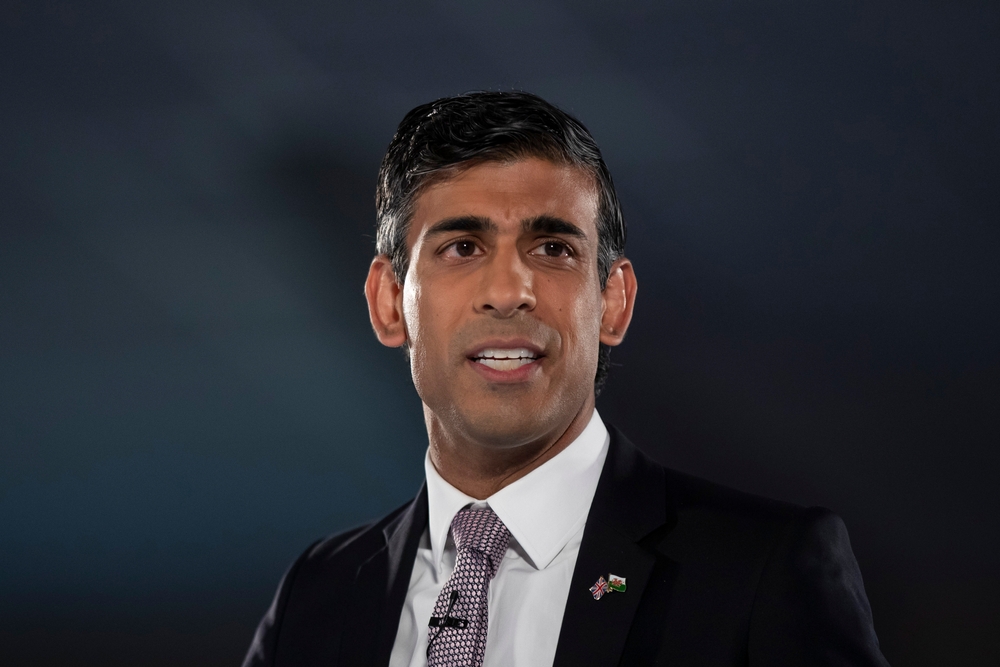The UK has seen a number of tumultuous changes within the country’s fabric in the past few months. The passing of the longest-reigning monarch in British history has apparently affected millions, while further millions have been and continue to be impacted by a cost of living crisis that appears to have no end in sight. With gas, electricity, water, and food prices skyrocketing, Liz Truss’ government has seen it fit not to address these burning issues, but instead to continue to utilise the nation’s aid budget in funding Egypt’s dictatorial government led by the notorious Abdul Fattah al-Sisi. [1] [2] [3]
In a piece published by independent investigative media organisation Declassified UK, chief investigator Matt Kennard has criticised the Truss government for its continued role in supporting Egypt’s leader Abdul Fattah al-Sisi in privatising state-owned enterprise and flogging them off to foreign bidders. Referencing Egyptian links with MI5 and MI6, he has warned that Britain is becoming “increasingly close to Egypt’s regime” whilst “repression has increased”. [3]
Egypt has had a dreadful human rights record under past dictators Hosni Mubarak and Gamal Abdel Nasser, as well as incumbent Abdul Fattah al-Sisi. However, under the latter, the country is reaching lower and lower depths as it has been previously estimated that since al-Sisi’s installation as president, around 60,000 political prisoners have been languishing behind bars. [4]
Citing the example of the British-Egyptian pro-democracy campaigner Alaa Abdel Fattah – who has been on hunger strike since April – Kennard states that the funding Britain provides to Egypt is a drop in the ocean when looking at other repressive states being backed by Britain.
Alaa Abdel Fattah is a human rights activist who has been enduring a hunger strike since 2 April, on account of the horrific treatment unleashed by his Egyptian captors. He has sustained beatings and been prevented from accessing British consular visits. [5]
Billions provided yearly through CSSF “slush fund”
Since 2015, the government has utilised a pot called the CSSF (Conflict, Security and Stability Fund) to funnel money to parts of the world that would arguably not be able to receive funding through other official means. Recipients include Lebanon, Bahrain, Syria, Somalia, and Egypt. [6]
The CSSF area of the government’s website states that it,
“…has been a catalyst for a more integrated UK government response to fragility and conflict. Over the last 6 years the CSSF has transformed the way the UK responds to conflict and fragility overseas. It enables 14 government departments and agencies to address security priorities in a collaborative way. The CSSF operates in over 80 countries and territories, delivering more than 90 programmes and combines Official Development Assistance (ODA) and other, non-ODA funding sources. This gives the fund a broad geographic and thematic reach. No other international donor has a funding instrument that can combine ODA and non-ODA funding in this way.” [7]
However, as Kennard notes in his piece published on 15 October, a parliamentary standards committee found in February 2017,
“There is a risk that the CSSF is being used as a ‘slush fund’ for projects that may be worthy, but which do not collectively meet the needs of UK national security.” [8]
In addition, the same committee said it was unable to confirm whether CSSF programmes delivered value for money for British taxpayers, in addition to understanding whether the CSSF programmes are actually meeting goals as set out by the National Security Council.
“We were unable to verify whether the CSSF’s programmes are delivering the NSC’s strategic objectives, let alone whether they are collectively having a strategic impact and therefore represent value for money for the taxpayer. This is because we do not have access to the classified NSC strategies that guide the use of CSSF funding. Nor do we have information about CSSF programmes beyond that which is in the public domain.” [8]
Truss on the high wire
Domestically speaking, the British government is in as volatile a period as it has ever been in recent history. The Prime Minister is clinging on for dear life after sacking Chancellor Kwasi Kwarteng over the pair’s botched economic reforms.
With Kwarteng ousted from his position after just three weeks on the job, it does not look like he will be receiving any glowing references for future employers. Although, this is British politics and failures are rewarded with promotion, albeit generally at a later date so as to give enough time for the public to forget about previous scandals. After all, Jeremy Hunt is the man who has just replaced Kwarteng. [9]
The Observer reported this morning that food banks are at “breaking point”, with an open letter expected to be handed to Truss on Monday, highlighting the dire situation in which donations are having to be rationed. People who are being severely impacted by the cost of living crisis are in urgent need of the bare necessities, but are unable to cover the costs. Many have forgone food in order to heat their homes, while others still have been going without eating in order to ensure their children are fed.
As the letter is expected to state to the Prime Minister,
“Every day we meet people who are skipping meals so they can feed their children and turning off their cooker or fridge so they can cover other essential costs. People who used to donate to food banks are now needing to seek our support. And the next 12 months look bleaker still.
“Many of our teams are struggling to cope as demand for our support outstrips our food and financial donations and we are forced to make difficult decisions about how we operate. We are overstretched and exhausted. Many of our organisations are at breaking point.” [2]
As Kennard points out in his investigative article, the British energy multinational BP has huge investments in Egypt, with over 60 years’ presence in the country and over $35bn invested to date. Combined with its partners, BP provides roughly 60 per cent of Egypt’s gas and this is one area that the British government appears keen to consolidate further. [10]
It is on the backs of these humanitarian crises unfolding on our doorstep that the government continues to pursue its own interests and that of British private corporations overseas. Is the government more interested in lining the pockets of private businesses than in ensuring the population is fed and shielded from the cold?
Also read
- Tips to Get Through the Cost-of-Living Crisis
- Nationwide crackdown: over 2,000 Egyptians arrested in anti-Sisi protests
- Egypt Rising: Clashes take place in Suez as protests continue against el-Sisi
- CBS to air the Sisi interview that the Egyptian state tried to block
- Mother detained in Sisi’s Egypt for speaking out over missing daughter
- Erdogan condemns Sisi over mass executions
- Mohamed Morsi: Remembering the Egyptian President three years on
- Egyptian cartoonist detained after releasing animation in support of 25 January Revolution
- “Enough is enough”, say politicians as UN pressed to scrutinise Egypt human rights
Source: Islam21c
Notes
[1] https://www.bbc.co.uk/news/uk-61585886
[2] https://www.theguardian.com/society/2022/oct/16/uk-food-banks-at-breaking-point-urge-liz-truss-to-boost-aid-to-poorest
[3] https://declassifieduk.org/uk-aid-helps-egypts-dictator-privatise-protected-sectors-of-economy/
[4] https://english.alaraby.co.uk/news/egypt-had-least-60000-political-prisoners-nyt
[5] https://www.amnesty.org.uk/urgent-actions/life-jailed-and-beaten-activist-risk
[6] https://www.middleeasteye.net/news/british-mps-question-slush-fund-aid-spending-bahrain
[7] https://www.gov.uk/government/organisations/conflict-stability-and-security-fund/about
[8] https://publications.parliament.uk/pa/jt201617/jtselect/jtnatsec/208/20806.htm
[9] https://news.sky.com/story/kwasi-kwarteng-sacked-as-chancellor-after-mini-budget-turmoil-sky-news-understands-12719407
[10] https://www.bp.com/en/global/corporate/what-we-do/bp-worldwide/bp-in-egypt.html









